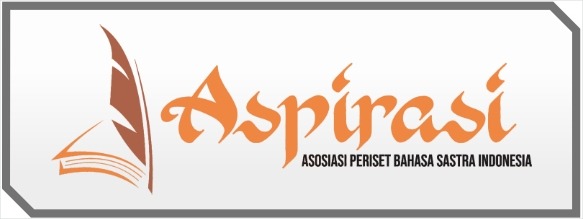Picture Series Strategy and Motivation in Eleventh Grade Speaking Achievement: An Experimental Research Design
DOI:
https://doi.org/10.61994/jee.v1i2.189Keywords:
Picture Series, Motivation, Spekaing AchievementAbstract
Despite the fact that speaking proficiency is essential for learning a foreign language, the majority of students struggle with it. This research set intended to discover: (1) whether or not students who trained to use the picture sequence approach and those who studied the presenting strategy had significantly different speaking abilities, (2) whether or not there was motivated and uninspired students perform significantly differently in speaking tasks, (3) whether or not there was the interact of picture series and motivation on speaking achievement. There were 60 students as sample and used purposive sampling, quantitative with factorial design approach, the information was gathered utilizing a speaking test and a questionnaire, paired sample t-test, independent sample t-test, and two-way ANOVA. Results, there is a big gap in speaking ability. It was proved by the result of paired t-test with t obtained (-13.950) was lower than t- table (1.697) and the significant value (0.000) was lower than a (0.05). It indicated that students' speaking achievement was improved. Also, it was proved by the result of independent sample t-test with t obtained (4,516) was higher than t- table (1.697) and the significant value (0.000) was lower than a (0.05). It indicated that students' speaking achievement was improved. In addition, the result of two-way ANOVA showed that A significant value was obtained of 0.003 < 0.05, that there was a difference between experimental group and the control group's speaking proficiency among students was motivated and uninspired. A significant value was obtained of 0.010 <0.05, Consequently, it could be said that there was a difference in speaking achievement between students who were motivated and those who weren't. A significant value of 0.355 > 0.05 was obtained, so it could be concluded there was no interact between learning methods and student motivation towards speaking achievement.
References
Abdelrady, A. H., Jahara, S. F., Elmadani, A. E. A., & Kumar, T. (2022). The attitude of Sudanese EFL students towards literature to enrich their vocabulary build (ing. Education Research International, 2022.
Benawa, A. (2018, March). The important to growing self-efficacy to improve achievement motivation. In IOP Conference Series: Earth and Environmental Science (Vol. 126, No. 1, p. 012086). IOP Publishing.
Creswell, J. W. (2012). Educational Research: Planning Conducting, and Evaluating Quantitative and Qualitative Research (4th ed) USA: Pearson Education, Inc.
Delima, E. (2018, September). The importance of multimedia learning modules (mlms) based on local wisdom as an instructional media of 21st century physics learning. In Journal of Physics: Conference Series (Vol. 1097, No. 1, p. 012018). IOP Publishing.
Eady, M., & Lockyer, L. (2013). Tools for learning: Technology and teaching. Learning to teach in the primary school, 71
Ekarista, F. (2018) Improving Students’ Ability in Recount Text Using Picture Series. KnE Social Sciences, 343-351.
Etikan, I., Musa, S. A., & Alkassim, R. S. (2016). Comparison of convenience sampling and purposive sampling. American journal of theoretical and applied statistics, 5(1), 1-4.
Gianfrancesco, M., Hyrich, K. L., Al-Adely, S., Carmona, L., Danila, M. I., Gossec, L., ... & Robinson, P. C. (2020). Characteristics associated with hospitalisation for COVID-19 in people with rheumatic disease: data from the COVID-19 Global Rheumatology Alliance physician-reported registry. Annals of the rheumatic diseases, 79(7), 859-866.
Gunantar, D. A. (2016). The impact of English as an international language on English Language Teaching in Indonesia. Language Circle: Journal of Language and Literature, 10(2), 141-151.
Ha, M. T. (2022). Data collection using online questionnaires in marketing. SAGE Publications, Limited.
Kamal, M. I., Zubanova, S., Isaeva, A., & Movchun, V. (2021). Retracted Article: Distance learning impact on the English language teaching during COVID-19. Education and Information Technologies, 26(6), 7307-7319.
Ningrum, I. A. (2021). The Students` Motivation in Learning English Vocabulary by Series Picture (Doctoral dissertation, Universitas Islam Kalimantan MAB).
Paneerselvam, A., & Mohamad, M. (2019). Learners’ Challenges and English educators’ approaches in teaching speaking skills in an ESL classroom: a literature review. Creative Education, 10(13), 3299-3305.
Pratiwi, Z. F., & Ayu, M. (2020). The Use of Describing Picture Strategy to Improve Secondary Students’Speaking Skill. Journal of English Language Teaching and Learning, 1(2), 38-43.
Rashid, Y., Rashid, A., Warraich, M. A., Sabir, S. S., & Waseem, A. (2019). Case study method: A step-by-step guide for business researchers. International journal of qualitative methods, 18, 1609406919862424.
Sari, D. (2017). Speaking anxiety as a factor in studying EFL. English Education Journal, 8(2), 177-186.
Sarla, G. S. (2020). Motivation manifesto. NOLEGEIN-Journal of Performance Management & Retention Strategies, 3(1), 12-17.
Saefurrahman, A. (2022). Investigating the use of picture series to teach English narrative writing: A case study in the Tenth-Grade English Class at MAN 1 Subang (Doctoral dissertation, UIN Sunan Gunung Djati Bandung).
Savitri, V. (2018)).The implementation of just a minute game in teaching speaking to the tenth grade students of SMA Wachid Hasyim 2 Sidoarjo, Surabaya, UNESA: Unpublished
Septa Riani. (2020). Teaching Students Writing Sskill in Analytical Exposition Text by Using PIE (POINT, ILLUSTRATION, EXPLANATION) Technique to the Eleventh Grade Students of SMAN 11 PALEMBANG (Doctoral dissertation, 021008 Universitas Tridinanti Palembang).
Suban, T. S. (2021). Teaching speaking: activities to promote speaking skills in EFL classrooms. Lectio: Journal of Language and Language Teaching, 1(1), 41-50.
Williamson, C. (2013). Questionnaires, individual interviews and focus groups. In Research methods: Information, systems, and contexts (pp. 349-372). Tilde University Press.
Zhang, H., Yu, L., Ji, M., Cui, Y., Liu, D., Li, Y.,& Wang, Y. (2020). Investigating high school students’ perceptions and presences under VR learning environment. Interactive Learning Environments, 28(5), 635-655.
Downloads
Published
Issue
Section
License
Copyright (c) 2023 Tomi Syaputra, Darmawan Budiyanto, Gaya Tridinanti, M. Rasyid Ridho

This work is licensed under a Creative Commons Attribution-ShareAlike 4.0 International License.

Journal of English Education by https://jurnal.dokicti.org/index.php/JCSS/index
is licensed under a Creative Commons Attribution-ShareAlike 4.0 International Licensel
















